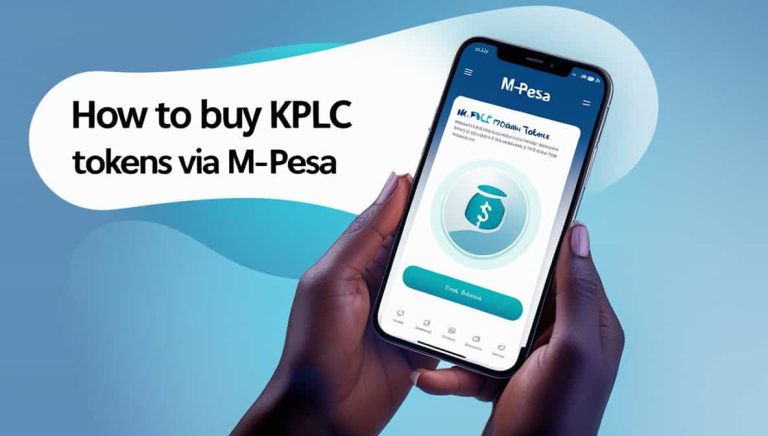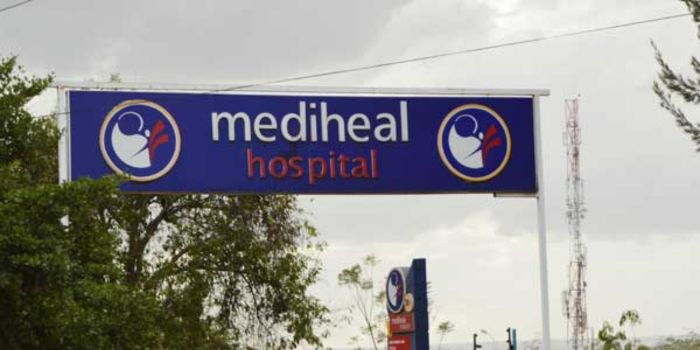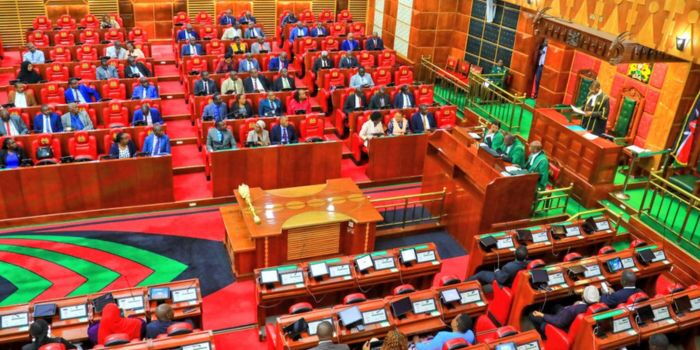 Most Marketable Degree Courses in Kenya (2025 Guide)
Most Marketable Degree Courses in Kenya (2025 Guide)
Choosing a degree course is one of the most important decisions a Kenyan student can make — and it can shape your entire future. With a competitive job market, it’s crucial to choose a course that aligns with current demand, industry growth, and employability prospects.
In this 2025 guide, we break down the most marketable degree courses in Kenya based on employment rates, entrepreneurship potential, global relevance, and income opportunities.
 1. Medicine & Surgery (MBChB)
1. Medicine & Surgery (MBChB)
Why it’s marketable:
Doctors are always in demand — both in public and private hospitals across Kenya. With a rising population and growing healthcare needs, the medical field is far from saturated.
Prospects:
-
Public and private hospitals
-
NGO work (e.g., MSF, Red Cross)
-
Specialization options (surgery, pediatrics, etc.)
-
Opens global job opportunities
Top Institutions:
University of Nairobi, Moi University, Kenyatta University
 2. Computer Science / IT / Software Engineering
2. Computer Science / IT / Software Engineering
Why it’s marketable:
Kenya’s tech industry is booming. With the rise of Fintech, AI, e-commerce, and digital services, there’s a growing demand for programmers, cybersecurity experts, and system administrators.
Prospects:
-
Software developer or mobile app designer
-
Cybersecurity analyst
-
Web development & freelancing
-
Tech startups & innovation hubs (e.g., iHub Nairobi)
Top Institutions:
Strathmore University, JKUAT, KCA University, Dedan Kimathi University
 3. Business Information Technology (BBIT)
3. Business Information Technology (BBIT)
Why it’s marketable:
BBIT combines business and tech, preparing graduates for roles in IT departments, corporate systems, and data-driven decision-making. It suits students interested in both entrepreneurship and employment.
Prospects:
-
IT officer in banks or SACCOs
-
Business systems analyst
-
Digital transformation consultant
-
ERP systems manager
Top Institutions:
Strathmore, JKUAT, USIU, Multimedia University
 4. Bachelor of Commerce (BCom) – with CPA/ACCA/CFA
4. Bachelor of Commerce (BCom) – with CPA/ACCA/CFA
Why it’s marketable:
Commerce graduates with added certifications (like CPA, ACCA, CFA) are highly employable in banks, audit firms, SACCOs, and large corporations. Specializations such as finance, accounting, or procurement are in high demand.
Prospects:
-
Accountant or Auditor
-
Financial Analyst
-
Bank Manager or Loan Officer
-
Self-employment in accounting firms
Top Institutions:
University of Nairobi, KCA University, Kenyatta University
 5. Nursing
5. Nursing
Why it’s marketable:
Nurses are on high demand globally — including in Canada, Australia, the UK, and the Middle East. Locally, counties and private hospitals are always hiring registered nurses and specialists.
Prospects:
-
General or specialized nurse (e.g. ICU, theater, pediatric)
-
International job placements
-
NGO and humanitarian work
Top Institutions:
KMTC, University of Nairobi, Aga Khan University
 6. Law (LLB)
6. Law (LLB)
Why it’s marketable:
Despite its saturation in some urban areas, law remains a top-tier course, especially for those who combine it with business, politics, or international relations. The ability to specialize and set up a personal practice increases its long-term value.
Prospects:
-
Advocate, Legal consultant
-
Public prosecutor, Magistrate
-
Human rights, NGO legal advisor
-
Corporate law (in-house counsel)
Top Institutions:
University of Nairobi, Kabarak University, Strathmore, Riara University
 7. Civil / Electrical / Mechanical Engineering
7. Civil / Electrical / Mechanical Engineering
Why it’s marketable:
As infrastructure development accelerates under Vision 2030, engineers are needed in roads, housing, energy, and industrial projects. Specialized engineers are also in demand in the renewable energy sector.
Prospects:
-
Site engineer, structural engineer
-
Energy sector consultant
-
Road and housing construction
-
Kenya Power, KENGEN, NEMA, NCA, etc.
Top Institutions:
University of Nairobi, Moi University, Dedan Kimathi, JKUAT
 8. Pharmacy / Medical Laboratory Science
8. Pharmacy / Medical Laboratory Science
Why it’s marketable:
These degrees support healthcare services. Pharmacists can work in hospitals, community pharmacies, or open their own businesses. Lab scientists are needed for diagnostics and public health.
Prospects:
-
Hospital or industrial pharmacist
-
Open your own pharmacy
-
Research labs, KEMRI, private labs
Top Institutions:
Kenyatta University, University of Nairobi, Mt. Kenya University
 9. Education (Science & Languages)
9. Education (Science & Languages)
Why it’s marketable:
There’s a consistent demand for high school teachers — especially in sciences (math, biology, physics) and foreign languages (French, German, Chinese). TSC regularly hires and promotes qualified graduates.
Prospects:
-
TSC employment as secondary school teacher
-
Lecturing opportunities
-
Curriculum developers at KICD
-
Language teaching in international schools
Top Institutions:
Kenyatta University, Moi University, Machakos University
 10. Aviation & Piloting
10. Aviation & Piloting
Why it’s marketable:
With Kenya being an aviation hub in East Africa, opportunities in piloting, aircraft engineering, and aviation management continue to grow. Though expensive, the long-term earnings are rewarding.
Prospects:
-
Commercial pilot (Kenya Airways, Skyward, etc.)
-
Aviation engineer
-
Air traffic controller
Top Institutions:
Kenya School of Flying, EASA, TUK, 43 Air School (SA)
 Bonus: High-Demand Short Courses to Pair with Any Degree
Bonus: High-Demand Short Courses to Pair with Any Degree
Even if your degree is not on this list, pairing it with in-demand short courses can boost employability:
-
CPA / ACCA – for finance/business degrees
-
Graphic Design / UI/UX – for media/IT graduates
-
Digital Marketing – for any business graduate
-
Project Management (PMP) – fits any field
-
Data Analysis (Excel, Power BI, Python) – works for all sectors
 Final Thoughts
Final Thoughts
Choosing a marketable degree course in Kenya in 2025 means going beyond just passion. Consider:
-
Current and future job demand
-
Earning potential
-
Ability to work locally or abroad
-
Opportunities for self-employment
Your education is an investment. Choose wisely, keep learning, and adapt to changes in the job market.











 How to Buy KPLC Tokens via M-Pesa – Easy Step-by-Step Guide (2025)
How to Buy KPLC Tokens via M-Pesa – Easy Step-by-Step Guide (2025) How to Buy KPLC Tokens via M-Pesa – 2025 Steps
How to Buy KPLC Tokens via M-Pesa – 2025 Steps How to Enter the KPLC Token into Your Meter
How to Enter the KPLC Token into Your Meter How Often Should You Buy KPLC Tokens?
How Often Should You Buy KPLC Tokens? Common Problems and Solutions
Common Problems and Solutions
 How to Apply for an HELB Loan in Kenya – Step-by-Step Guide (2025 Update)
How to Apply for an HELB Loan in Kenya – Step-by-Step Guide (2025 Update) Why Apply for a HELB Loan?
Why Apply for a HELB Loan? Requirements for HELB Loan Application
Requirements for HELB Loan Application For First-Time Applicants (Undergraduate or TVET):
For First-Time Applicants (Undergraduate or TVET):
 Tip: Use a secure email and a strong password — you’ll use this account throughout your course.
Tip: Use a secure email and a strong password — you’ll use this account throughout your course. It can take 2–6 weeks for HELB to process your application.
It can take 2–6 weeks for HELB to process your application. Common Mistakes to Avoid
Common Mistakes to Avoid Wrong or missing KRA PINs
Wrong or missing KRA PINs Frequently Asked Questions (FAQs)
Frequently Asked Questions (FAQs) No. Both you and your parents/guarantors must have valid KRA PINs.
No. Both you and your parents/guarantors must have valid KRA PINs. Final Thoughts
Final Thoughts



 What You Need Before You Begin
What You Need Before You Begin How to File KRA Returns Online: Step-by-Step (2025)
How to File KRA Returns Online: Step-by-Step (2025) Who Should File KRA Returns?
Who Should File KRA Returns? Frequently Asked Questions (FAQ)
Frequently Asked Questions (FAQ)
 Top 10 Loan Apps in Kenya Without CRB Check (2025)
Top 10 Loan Apps in Kenya Without CRB Check (2025) Things to Watch Out For
Things to Watch Out For Tips to Get Higher Loan Limits
Tips to Get Higher Loan Limits
